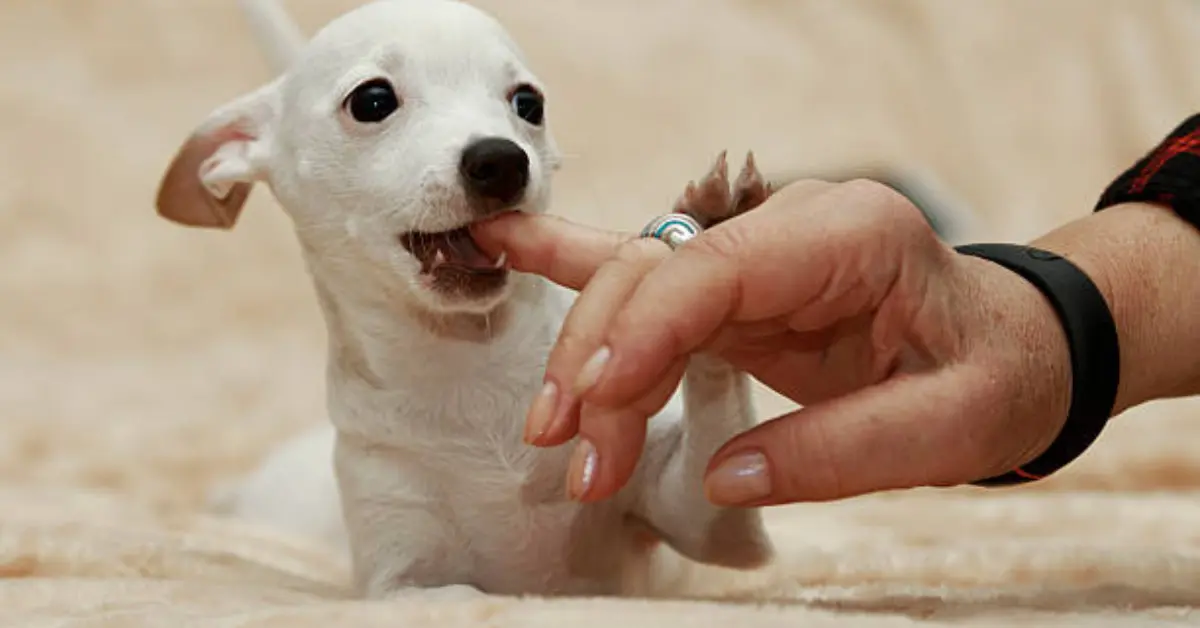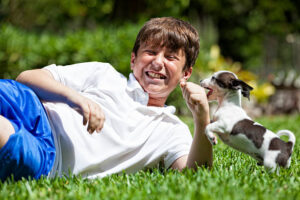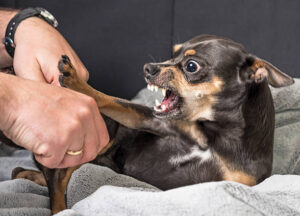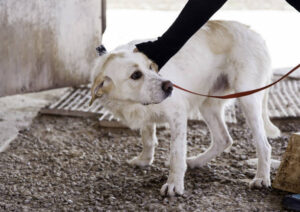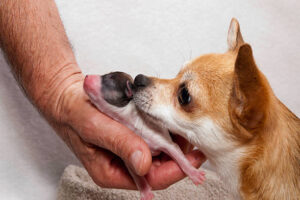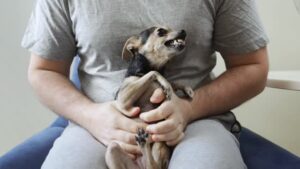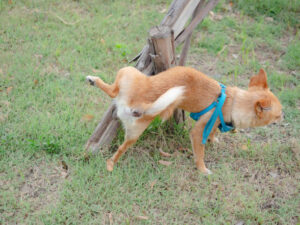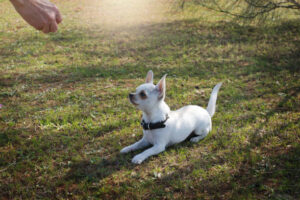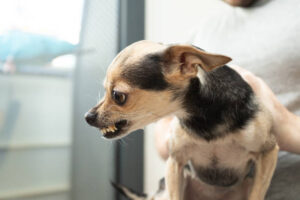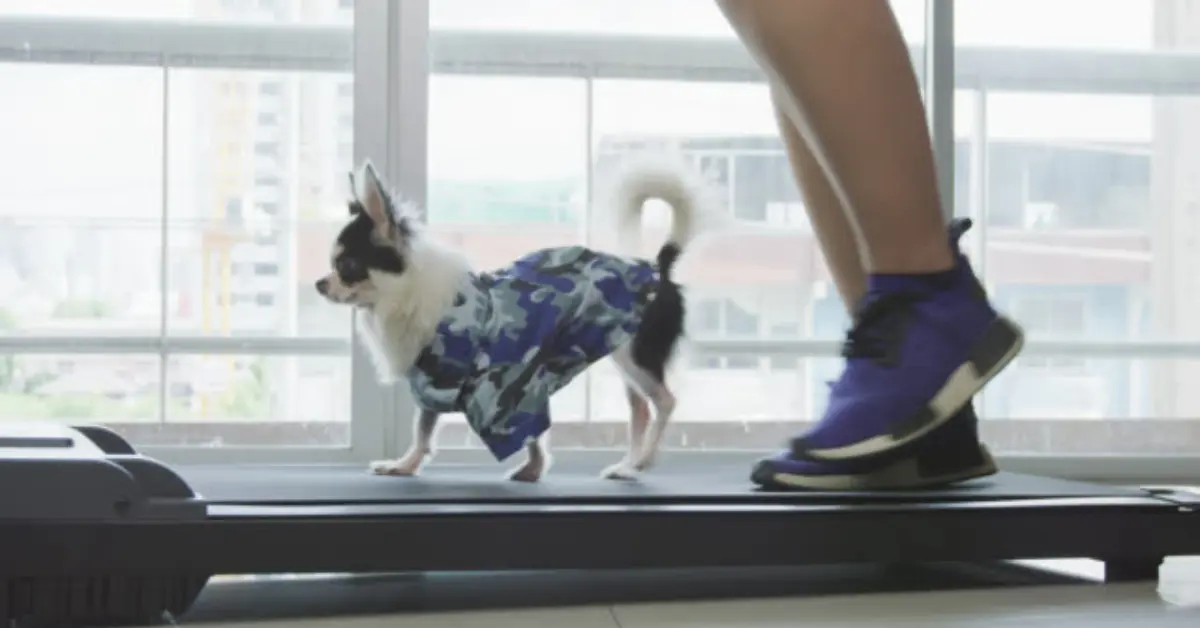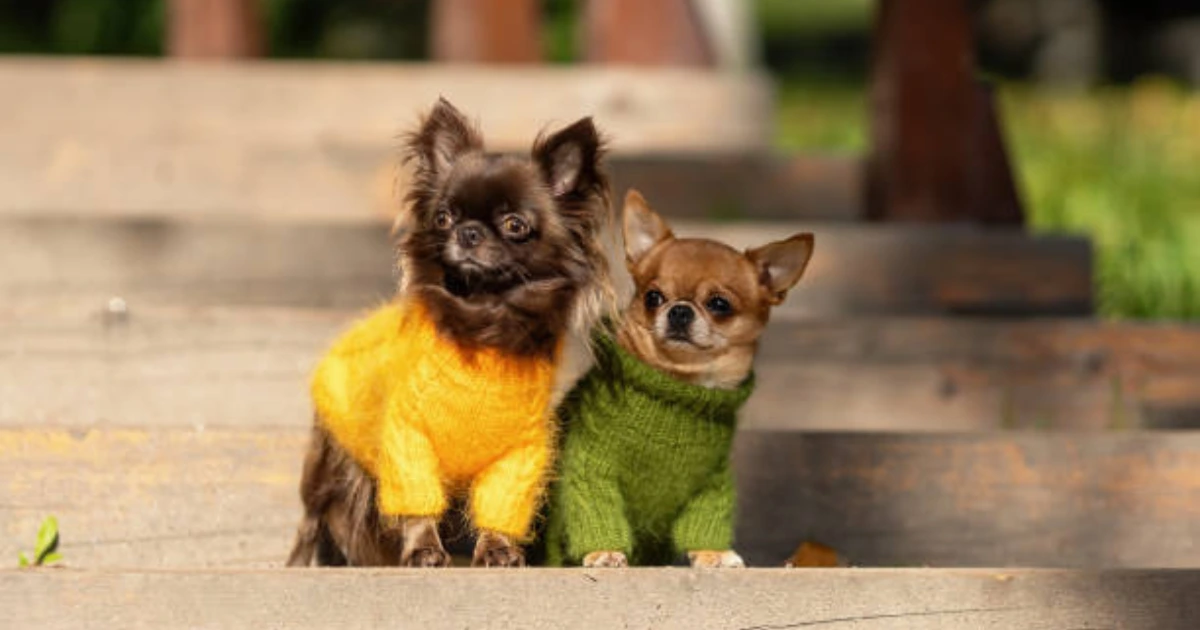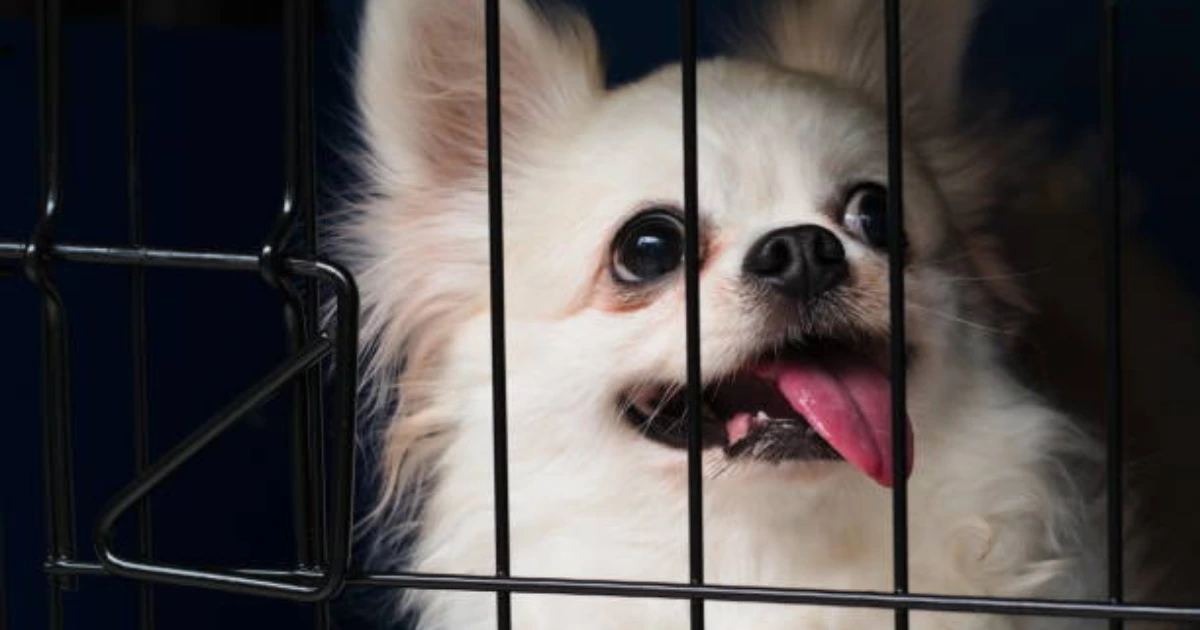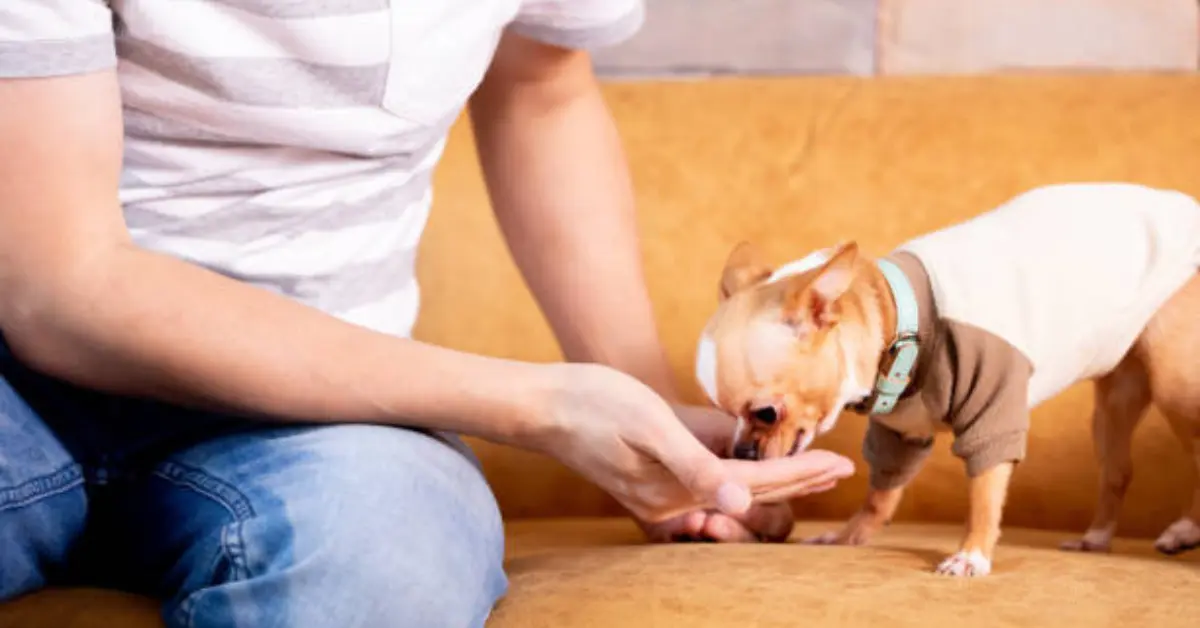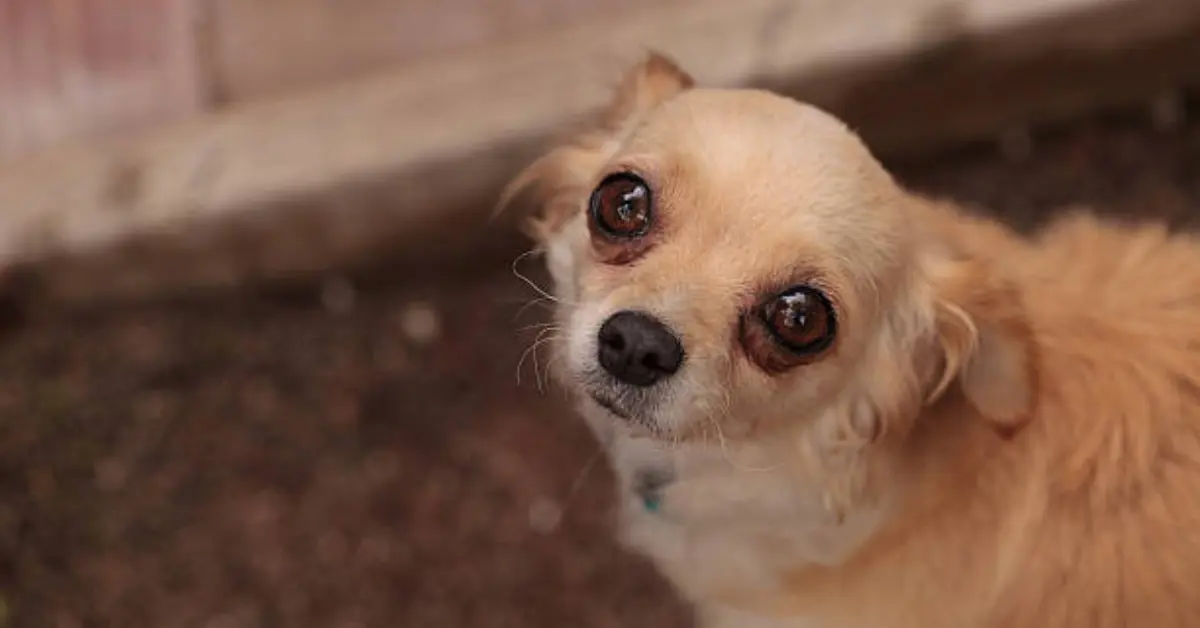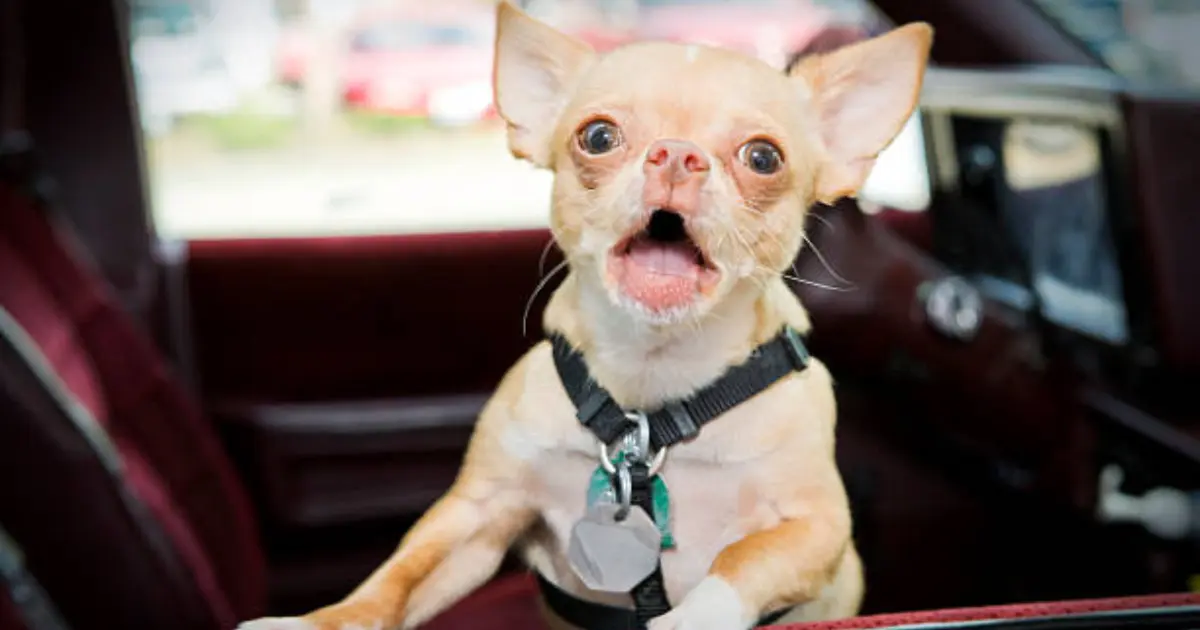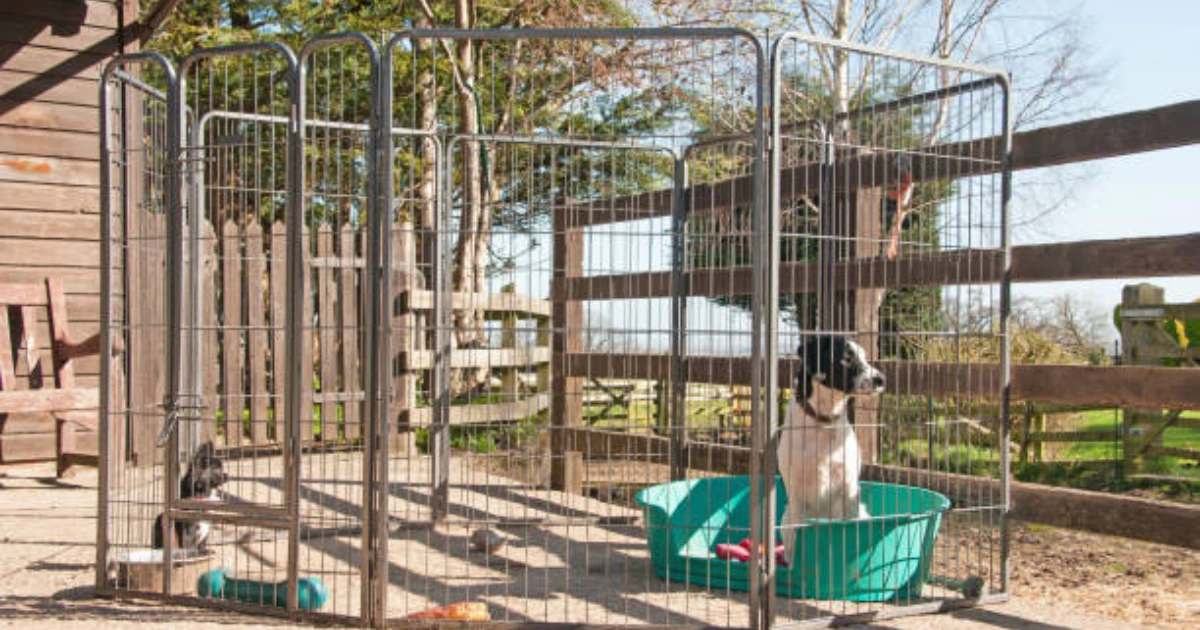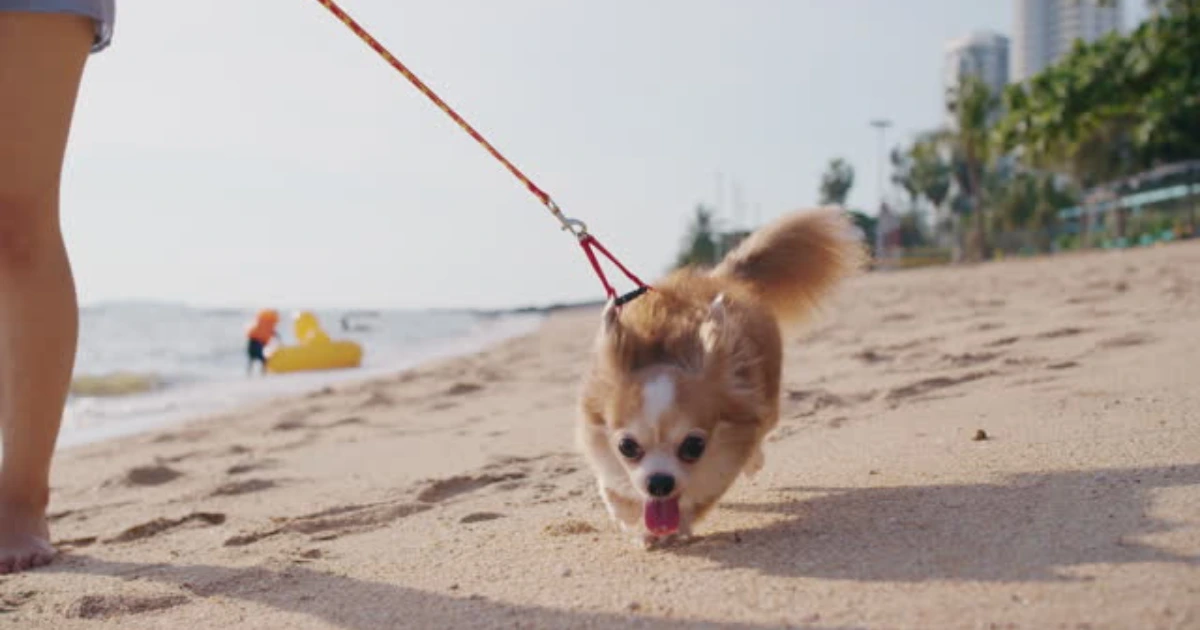Dogs utilize their jaws for a variety of purposes. They use them to communicate, to eat and drink, to defend themselves, to communicate, and perhaps just for enjoyment. Still, the expectation is usually that your chihuahua will not behave badly with his mouth when you bring him home. This includes using his teeth inappropriately, eating the incorrect foods, and making noise when he shouldn’t. As it can quickly start to hurt or cause damage, even if the dog doesn’t try to, most dog owners are against letting their dogs bite or mouth at their hands. As a result, one of the most asked questions when owning a chihuahua is “How to train a chihuahua not to bite”
This part of owning a dog should even apply to the smaller breeds, such as Chihuahuas. Even though a Chihuahua’s bite probably won’t cause as much harm as that of a larger dog, it’s still best to avoid the habit. After all, bites can also occur to younger kids or other tiny pets in your house.
Nipping Vs Biting
It’s critical to distinguish between biting and nipping.
Advertisement
We call a fast snap of the jaws “nipping“. There might be skin contact or not. An owner’s skin is rarely broken by a nip, though it can sting briefly. When a puppy nips, his head pops out, his jaw snaps, and he quickly resumes his previous activity.
A bite, on the other hand, is a forceful physical assault. A dog will often go into defense mode, emitting a warning growl and clenching its jaws to make skin contact with the victim. A chihuahua may bite once or multiple times, but each time it does it with full vigor, injuring the person it bites. A dog may yield in these circumstances, but it frequently takes some time for it to return to its typical behavior.
Therefore, nipping is typically the cause of owners’ concerns with their Chihuahua biting. This is not meant to minimize nipping, which may be very challenging to manage and can disrupt the entire family. Although it might not be harmful, it obstructs the owner and dog’s regular communication.
This might go on forever if there is no training to end it. While adults may also exhibit this behavior, pups make up the bulk of Chihuahuas that nip.
The Main Reasons Behind Chihuahuas Biting
Biting is one of the natural behavioral behaviors inherited by Chihuahuas from their ancestors. When pushed to the brink, even the most placid “lap-friendly” Chihuahua can bite. To stop this undesirable behavior, owners need to be aware of a few of the causes of Chihuahua bites.
Fear
If a Chihuahua worries about his safety, he is more likely to bite a person or another animal. Dogs are afraid of strange persons and surroundings, which is why they frequently attack veterinarians. Your Chihuahua may growl and nip the veterinarian when you bring him in for his initial inspection. Even though the veterinarian poses no risk to your dog, they are nevertheless seen as potential threats.
Owners should advise strangers not to pet or handle their Chihuahua, as most fear bite victims are strangers. At the park, it’s not unusual for strangers to stop and pet pets. They expose themselves to damage by doing this. While strolling your Chihuahua in an open space or other public place, kindly refuse requests to pet your dog unless you and your chihuahua are friends. The first step in stopping fear-induced biting is socialization.
Past Abuse
It’s possible that a Chihuahua you got from a shelter or rescue bit. Because his previous owner mistreated him, to find out whether there has been any history of abuse, you might contact the adoption agency where you obtained your Chihuahua, however many incidents go unreported.
Abuse can take many different forms, including physical abuse, social isolation, verbal or physical punishment, shackling, or taking the puppy away from its mother too soon. After experiencing abuse, some Chihuahuas bounce back quickly, but others suffer from emotional wounds that take a long time to heal and eventually become aggressive.
Rebuilding a Chihuahua’s trust in people after mistreatment is a difficult undertaking that takes time to complete. You can assist your Chihuahua in overcoming these unpleasant emotions, though, if you give them enough time, love, determination, and patience.
Motherly Violence
In the first two to three weeks following childbirth, female Chihuahuas are more prone to bite. This behavior, which is referred to as “maternal aggression,” is the outcome of significant hormonal changes taking place throughout her body, such as an increase in the production of the hormones prolactin and oxytocin and a drop in progesterone.
Oxytocin, sometimes referred to as the “love hormone,” is a neurotransmitter linked to attachment, nurturing, and mother bonding. It is released by the brain’s hypothalamus. To aid the fetus in passing through the birth canal, it is used to induce contractions during labor.
When a female Chihuahua is about to give birth, her levels of the soothing hormone progesterone drop, which causes her body to produce more prolactin. Prolactin stimulates the production of milk and is linked to nesting and maternal instinct. Experts in veterinary medicine think that the behaviors seen by female dogs in pseudopregnancy are similarly predominantly caused by prolactin. A female Chihuahua’s hormonal changes during or soon after pregnancy may cause her to become more aggressive.
You should never try to correct a female Chihuahua’s maternal hostility. Instead, you should avoid contact with her until her hormones return to normal. Wait until after she has left her nesting location for food or water if you need to weigh or inspect her puppies. After giving birth, her hostility should progressively lessen each day, and after three to four weeks, her behavior should revert to normal.
Teething
At three to five weeks of age, a Chihuahua puppy’s baby teeth, also known as milk teeth, will sprout through his gums, enabling him to switch from breast milk to dry food. Puppies will bite and chew on almost anything they can get their paws on, including toys, socks, shoes, carpets, rugs, and even your hand, to ease the discomfort that comes with this growth stage.
This will keep happening until all 28 baby teeth come out. His biting and chewing behaviors may resurface when your Chihuahua’s adult teeth erupt, which normally happens between three and four months of age.
A puppy doesn’t mean to cause harm, and his bite won’t do much harm due to his early age. However, it’s critical to start training your Chihuahua at a young age that biting is unacceptable.
To stop your Chihuahua from biting during the teething stage, use these tips:
- Give your Chihuahua permission to bite your fingers, but don’t encourage it.
- When your Chihuahua bites too hard, teach them to bite inhibition by taking your hand away and exclaiming, “Ouch! That hurts!” The most crucial action you can do is this one, which we go into more depth about below.
- Place ice cube trays in the freezer after filling them with low-sodium beef or chicken broth. Once frozen, give your teething Chihuahua this refreshing treat.
- A healthy and delicious treat for a Chihuahua going through teething is chilled carrots.
- Give your Chihuahua appropriate toys to keep their teeth off of carpet and shoes. Because they can tolerate being chewed on for hours on end, rope toys are fantastic. For a Chihuahua who is teething, Kong toys are among the toughest dog toys available. You can also fill them with water and freeze them for further comfort of sore gums.
- Steer clear of soft toys because they are easily torn apart and provide little to no relief for sore gums.
Rage Caused by Pain
Chihuahuas instinctively defend themselves against harm. Regardless of who inflicted the pain, a Chihuahua may bite the person closest to him to vent his discomfort. Even if he is unsure of the source of the pain, his urge to fight or flee compels him to attack the closest human or animal.
Your Chihuahua might act aggressively when touched in the knee if he has patellar luxation, a common medical ailment in this breed. To prevent being bitten, owners and family members should exercise caution while interacting with a Chihuahua that has painful physical ailments or injuries.
An injury or medical condition is not a prerequisite for a Chihuahua to display pain-induced aggression. Toy breeds are particularly prone to pain-induced violence due to their small stature and high pain threshold. A chihuahua may bite a child (or adult) if they push, tug, squeeze, or press your Chihuahua too firmly.
Here are some indicators that your Chihuahua is in pain:
- Hostile actions
- Flattened Ears
- Appetite decline
- Not eager to participate in games Reluctant to accept rewards
- Yelling, complaining, or snarling in response to contact
- Excessive breathing
- Overindulgent paw-licking
- Having trouble falling asleep
Make an appointment with your veterinarian as soon as possible if you think your dog is in discomfort. Following an examination, your veterinarian can assist in determining the source of the discomfort and guide available choices for pain management.
Territorial
Chihuahuas naturally defend objects that they regard as belonging to them, such as beds, humans, food, water, toys, and homes. A Chihuahua that exhibits “territorial aggressiveness” is more likely to bite someone or an animal that encroaches on their territory. The objective of this isn’t to injure the individual but to make him or her go away.
The first step in preventing bites from territorial aggressiveness is to instill in your Chihuahua the belief that it is your property, which YOU will defend. If your Chihuahua becomes combative when a stranger knocks on the door, ask a friend to knock and enter through the front door, then give your dog a treat to let him know it’s okay.
Give your Chihuahua access to an area just when he isn’t acting aggressively, such as the living room corner, if that’s where he is hostile. If he acts aggressively toward a toy, you can take it away from him and return it when he calms down. Additionally, some experts advise making dogs “work” for their toys and belongings by having them follow simple obedience cues like sit or heel in exchange for receiving the object or toy. This can stop territorial violence together with consistent socialization and reinforcement.
When your Chihuahua is eating, carefully approach him with a reward to avoid territorial aggressiveness. You should move away and wait a few minutes before coming back with another treat, at which point he should temporarily stop eating to take the treat. This demonstrates to your Chihuahua that territory invasions aren’t always negative.
Unclear Hierarchy
A Chihuahua typically gains some daily insight into household leadership as he gets older. Feeding a dog and giving him orders are enough to establish the idea that the human is the head of the household (the Alpha).
When a Chihuahua wrongly thinks that he is the leader or doesn’t know who is in charge, problems like biting and nipping might start to arise.
Unaware of his position within the family hierarchy, a dog may start to challenge the line of command. This frequently takes the form of becoming belligerent, which might involve snapping at his humans and exhibiting behaviors such as refusing to obey directions or allowing physical contact.
Illness
Chihuahuas may become aggressive due to certain illnesses and ailments. One illness that can increase a dog’s propensity to bite is hypothyroidism in normally placid animals. The thyroid gland is a tiny gland that produces thyroid hormones that control healthy metabolic processes. its location is near the larynx, or voice box. The thyroid gland’s insufficient production of these hormones results in hypothyroidism.
Although it mainly affects larger breeds, Chihuahuas can also acquire hypothyroidism. If your Chihuahua has this disease, the vet can diagnose it with a straightforward blood test. Dog hypothyroidism is frequently treated with prescriptions for thyroid hormone supplements, such as levothyroxine.
Hypothyroidism symptoms can include:
- Hostile actions
- Sluggishness
- Loss of hair and excessive shedding
- Unexpected weight increase
- Pigmentation of the skin in excess
- Elevated cholesterol
- Anemia
Another illness that may cause aggressive behavior in dogs is Lyme disease. Swollen lymph nodes, joints, fatigue, appetite loss, and neurological symptoms like agitation, disorientation, and hostility can all result from tick bite transmission. Only 5–10% of dogs with Lyme disease exhibit symptoms, though.
Although there is a vaccine for Lyme disease, many physicians advise against it in favor of more conventional tick control techniques because of the possibility of negative immunization reactions.
How to Train Your Chihuahua Not to Bite
There is no one way to train a Chihuahua that will stop them from biting. There are lots of reasons why dogs bite, and the best way to stop them depends on what makes them do it. So, the tips below can help make it much less likely for Chihuahuas to bite or act aggressively in other ways.
Teach how to stop biting
We call the capacity of a dog to regulate the force of his bite “bite inhibition”. For example, your Chihuahua shouldn’t use his entire jaw to bite your palm when you offer him a treat. He will receive the treatment more cautiously to avoid hurting you if he is aware of bite inhibition. Teaching your Chihuahua to regulate the force of his bite is the aim, not stopping him from biting.
Puppies play and nurse their littermates while they develop bite inhibition at a young age. A high-pitched shriek that sounds like “You bit me too hard—and it hurt!” may be set forth by a puppy that bites one of his littermates too hard. The same is true for puppies who are nursing: if they bite their mother too forcefully, she can rise and leave. A puppy needs to learn how to control his biting if he wants to play and feed.
Puppies should spend a minimum of eight weeks with their mother for this reason, among others. Puppy development of biting inhibition through play and feeding is less likely if the puppy is removed too soon. The same holds for those who are born alone and without playmates.
When training biting inhibition, keep these three guidelines in mind:
- React if your chihuahua bites you hard. Saying “Ouch, that hurt!” and removing your hand will stop your Chihuahua from biting too hard. After that, you should ignore him for a few minutes to deter him from biting too hard.
- Maintain consistency in your training endeavors. Consistency is crucial while teaching your Chihuahua bite inhibition. When you reply with a loud “Ouch” on one occasion but not the next, you are giving him mixed signals, which confuses him.
- bolster until maturity. It is ideal to teach biting inhibition to a puppy when it is still a young puppy. That said, you ought to keep reinforcing it long after your Chihuahua reaches adulthood.
Do Not Discipline your Chihuahua If It Growls
Many Chihuahua owners reprimand or otherwise discipline their dogs when they growl. By doing this, they take away a crucial warning indicator that comes before biting. If you instill in your Chihuahua the negative perception that growling is unacceptable, he can bite without provocation the following time. Growling is no longer a warning indication, but the possibility of biting is.
If you’re attempting to train your Chihuahua not to bite, letting him growl may seem like a bad idea, but it really helps. When a Chihuahua growls, owners can teach their kids to back off to prevent any damage.
He may also be revealing the source of his aggression by growling. Your Chihuahua may be experiencing discomfort from an injury or illness if he growls when you pick him up. His aggressive behavior is territorial if he growls at a different pet that comes near his kennel.
Socialize Your Chihuahua
If Chihuahuas lack socialization, they are far more prone to act aggressively. A Chihuahua that isn’t socialized with other people, animals, or places is more prone to exhibit fear-based aggressiveness, which includes biting the hand of a stranger.
Ideally, you should start socializing your Chihuahua puppy when he is still a puppy to teach him that other people and animals aren’t terrible. Between three and sixteen weeks of age, puppies are most receptive to socialization. When it comes to new faces in the future, your Chihuahua will become less tense if he had good early experiences with both people and animals.
Spaying/Neutering
Chihuahua aggression may be decreased by spaying or neutering the dog. Lower testosterone levels following neutering reduce behaviors linked to this hormone, including marking territory with urine, hyperactivity, fleeing, and aggression.
When a female Chihuahua is spayed, her heat cycle and the accompanying behaviors related to getting into heat are terminated. Additionally, it might lessen hormone-driven behavior in females, such as nest guarding during a pseudopregnancy.
It was once generally accepted that the best way to avoid these behavioral issues in male dogs was to neuter them before they reached puberty.
Last Word
You will need to be patient when training your chihuahua to stop biting. Some dogs take a while to understand. But if you are patient and tough but gentle, your new pet should settle down and resume its regular behavior.
To help your pet learn more quickly, it’s important to train them consistently.
YOU MAY ALSO LIKE:
13 Tips On How To Train An Aggressive Chihuahua
How To walk A Chihuahua That is Aggressive
Why Are chihuahuas So Aggressive? Tips to Calm Down an Aggressive Chihuahua
Advertisement

